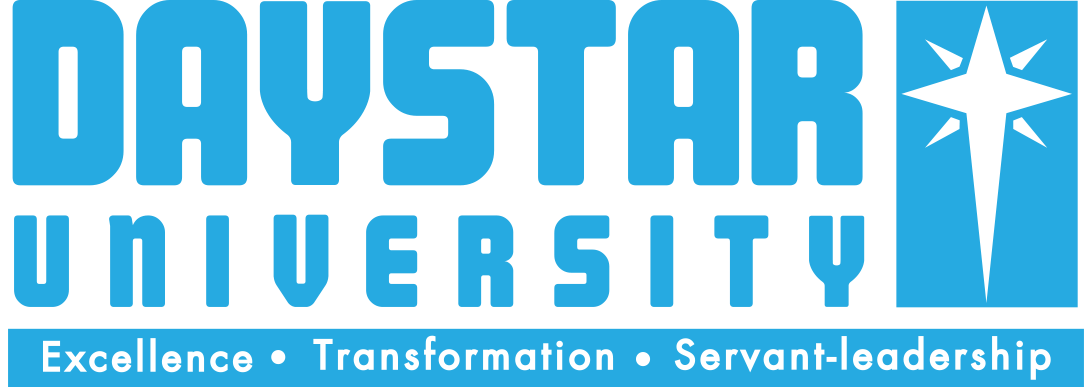
Reflections from Prof. Laban P. Ayiro at the Archdiocese of Nairobi Teachers Day
A cross-section of some of the 5,000 teachers who attended the Catholic Archdiocese of Nairobi Teachers' Day at St. Mary's School Loreto Msongari.
By Ashford Kimani
[Nairobi: Saturday, July 19, 2025] Listening to Prof. Laban P. Ayiro, the Vice Chancellor of Daystar University, deliver the keynote address during this year’s Archdiocese of Nairobi Teachers’ Day at St. Mary’s School, Msongari, was nothing short of transformative.
His message was not just about systems or institutions - it was about values. About modelling leadership from a place of conviction, not convenience. About doing the small things with such consistency and integrity that they naturally shape culture.
Here are my key takeaways:
- At Daystar University, staff and students use the same toilets. No one gets special treatment - not even the Professors or Senior Administrators. There are no "staff-only” washrooms hidden behind executive labels.
At first glance, that might seem ordinary. But in a society where privilege is often used to separate, not to serve, that decision is profound. It reflects a belief in human dignity, equality and humility. The message is clear: no one is above others.
- Leadership begins with shared spaces, not elevated platforms. Even more fascinating is that despite the shared use, those toilets are always clean, fully stocked with toilet paper - and nothing is ever stolen.
√ No rolls disappear.
√ No dispensers are vandalized.
Why? Because of a deeply rooted value system. When people are trusted, respected and included in systems built on integrity, they respond in kind.
Prof. Ayiro’s point was simple: you don’t have to police what you’ve already taught through culture. When a value becomes shared, behavior aligns naturally.
- The lecture halls at Daystar University are never locked.
√ Yet, no projectors disappear.
√ No wires are stripped.
√ No podiums are destroyed.
In a world where theft and destruction are often explained away by poverty or lack of resources, this speaks volumes.
√ Trust begets responsibility.
√ When an institution trusts its members - students, staff and visitors - it invites them into stewardship. It tells them: “This is your space. Own it. Protect it.”
And people do. Daystar University teaches us that sustainable order isn’t built through surveillance, but through shared values.
What struck me most deeply, however, was Prof. Ayiro himself. Despite his status, he still teaches like any other lecturer. He stands before students in lecture halls, not as a distant figurehead but as a scholar. A teacher. He doesn’t have to teach - he’s the Vice Chancellor. But he does. Regularly. Why? Because he believes in role modelling. Because leadership, according to him, is not about sitting in lofty offices writing policies, but walking the corridors of learning and mentoring through action. He teaches not because it’s required, but because it’s right.
He [does not] move with a bodyguard. He has access to the trappings of power—a flag on his car, protocol and prestige. But he reminded us that all those things are not his personal benefits. They belong to the office. They serve the role, not the man. That distinction is powerful.
Too many people, once they acquire privilege, confuse personal entitlement with professional responsibility. Prof. Ayiro’s humility was a masterclass in grounded leadership. Power must never intoxicate. It must serve.
Another subtle yet profound example was Daystar’s dedication to environmental sustainability. The university has planted thousands of trees. Not for show. Not to tick CSR boxes. But because the university believes in stewardship of creation.
Every tree planted is a statement: “We care about the future. We are accountable for what we leave behind. In a world grappling with climate change, Daystar chooses action over rhetoric,” said Prof. Ayiro. And that action begins with values.
These examples might seem like scattered dots, but Prof. Ayiro connected them with seamless clarity. They all stem from one central philosophy: values must drive everything. Systems without values crumble. Leadership without humility becomes tyranny. Institutions without integrity become corrupt. Culture without modelling becomes noise.
As teachers, we were challenged to reflect on our own spaces. Do our students see us practicing what we teach? Are we creating environments of trust and responsibility? Do we inspire by presence or instruct from a distance? Do we understand that the privileges we hold - titles, responsibilities, influence - are not personal possessions but tools for service?
Prof. Ayiro reminded us that leadership is not about the position you hold, but about the example you live. That a clean toilet says more about your values than a framed mission statement. That a Vice Chancellor in the classroom teaches louder than any strategic plan. That locked doors and lost projectors aren’t signs of poor management - but of poor culture.
Ultimately, he left us with this unspoken challenge: lead from where you are. Whether you’re a classroom teacher, a school head, or a board member, model the culture you want to see. Don’t wait for a policy. Be the policy. Don’t preach values; live them. Let your consistency become your greatest lesson.
As we left St. Mary’s School that Saturday, Prof. Ayiro’s words echoed louder than any applause: Integrity is not a rulebook - it’s a way of life.
Ashford teaches English and Literature in Gatundu North Sub County and serves as Dean of Studies.
